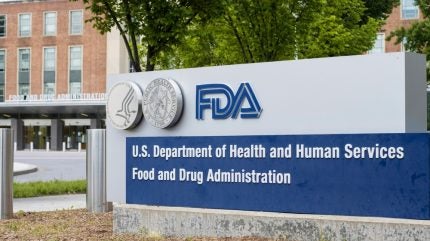
Intercept Pharmaceuticals will have to keep waiting for a decision about Ocaliva (obeticholic acid) after the US Food and Drug Administration (FDA) has asked for more time to determine whether to grant the drug full approval.
It’s been a rocky ride for the rare liver disease drug, and now its subsidiary is also facing delays despite the original Prescription Drug User Fee Act (PDUFA) date for the drug’s supplemental New Drug Application (sNDA) being on 15 October. The treatment is only available to primary biliary cholangitis (PBC) patients through accelerated approval in the US. The FDA did not provide a new anticipated action date, however, Intercept’s president Vivek Devaraj said: “We will continue to engage with the FDA regarding our pending application.”
Bologna, Italy-based Alfasigma inherited the drug as part of its $794m acquisition of Intercept Pharmaceuticals in September 2023 and the company has continued operating as a subsidiary of Alfasigma. However, the treatment has faced a series of setbacks since its 2016 accelerated approval. In 2018, the FDA had to add a boxed warning after Ocaliva was being incorrectly dosed as a daily treatment, instead of a weekly treatment.
A September 2024 FDA advisory committee (AdCom) recommended against full approval for Ocaliva by a 13-1 vote, concluding that confirmatory evidence did not verify the treatment provided clinical benefit. In a separate vote, panellists voted 10-1 that the benefits of Ocaliva did not outweigh its risks, with three abstentions.
In the same month, the European Commission (EC) withdrew Ocaliva’s conditional marketing authorisation as a second-line treatment for patients with PBC. This followed a June recommendation from the European Medicines Agency’s (EMA) Committee for Medicinal Products for Human Use, which reassessed the benefit-risk profile of the drug. In a surprise decision just days later, the President of the General Court of the European Union overruled the decision, allowing Ocaliva to remain on the market.
PBC is a chronic autoimmune disease where the immune system attacks the small bile ducts in the liver, causing bile buildup, liver inflammation, and eventually scarring or cirrhosis. Ocaliva activates the farnesoid X receptor (FXR) to reduce bile acid production and promote its removal.
Ocaliva now faces competition in the PBC space. In August 2024, the FDA granted accelerated approval to Gilead’s Livdelzi (seladelpar), a drug it inherited as part of the $4.3bn CymaBay Therapeutics deal in March 2024. According to GlobalData forecasts, Livdelzi is set to generate $558m in 2030. Before it was acquired by Alfasigma, Ocaliva earned $285.7m in 2022, as per Intercept’s financials.
GlobalData is the parent company of Pharmaceutical Technology.
In September 2024, the EC gave Ipsen’s Iqirvo (elafibranor) the green light for the treatment of PBC in combination with ursodeoxycholic acid in adults who do not respond adequately to ursodeoxycholic acid alone. The decision in Europe follows an accelerated approval granted by the FDA in June this year.



